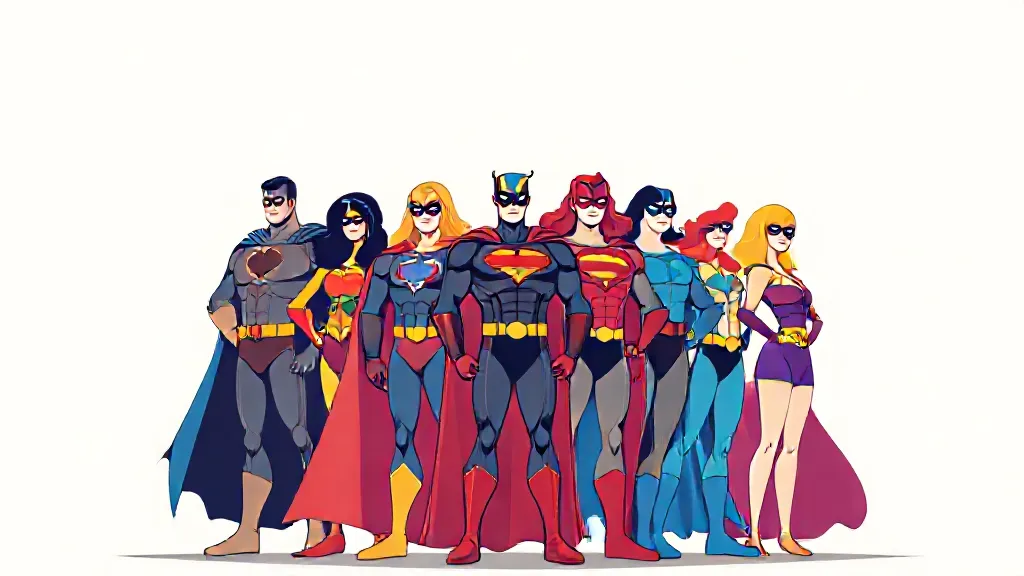Superhero franchises have become a dominant force in entertainment, captivating audiences across the globe. But what is it that makes these larger-than-life characters so relatable to everyday people? At their core, superhero stories often reflect the struggles, aspirations, and moral dilemmas faced by individuals in real life. By examining the underlying themes and character development within these narratives, we can better understand their widespread appeal.
The Human Condition in Superhero Stories
One of the primary reasons superhero franchises resonate with audiences is their exploration of the human condition. Superheroes often grapple with issues like identity, loss, and the burden of responsibility. For instance, Peter Parker (Spider-Man) embodies the struggle of balancing personal life with the demands of being a hero.
His challenges—such as dealing with the death of Uncle Ben and the pressures of high school—mirror the experiences of many young adults. This relatability is further enhanced by the fact that superheroes often face internal conflicts, making them multidimensional characters that reflect our own complexities.
Moral Ambiguity and Ethical Dilemmas
Another significant aspect of superhero narratives is the presentation of moral ambiguity.
Characters like Batman and Wolverine often operate in a gray area, forcing audiences to confront ethical dilemmas. The choices these heroes make can spark discussions about justice, revenge, and sacrifice, which are relevant to contemporary societal issues. For example, the portrayal of anti-heroes in franchises like "The Punisher" or "Deadpool" showcases the struggle between personal vendettas and the greater good, prompting viewers to reflect on their values and beliefs.
The Power of Transformation and Growth
Superheroes often undergo significant transformations throughout their stories, symbolizing personal growth and resilience. Characters like Iron Man (Tony Stark) evolve from flawed individuals into symbols of hope and strength. Stark's journey from a self-centered billionaire to a selfless hero who sacrifices himself for others resonates with audiences who aspire for personal improvement.
This theme of redemption and growth is universally appealing, as it reflects the potential for change within us all.
Representation and Diversity in Superhero Narratives
In recent years, there has been a growing emphasis on representation within superhero franchises. Characters from diverse backgrounds, such as Black Panther (T'Challa) and Ms.
Marvel (Kamala Khan), provide audiences with relatable figures who reflect their own experiences. This shift towards inclusivity allows a broader range of viewers to see themselves in these narratives, fostering a deeper emotional connection. The success of films like "Black Panther" demonstrates how representation can enhance relatability and create a sense of belonging among audiences.
Community and Belonging in Superhero Teams
Superhero franchises often emphasize the importance of community and teamwork. The dynamics within groups like the Avengers or the Justice League highlight the value of collaboration and support. These narratives resonate with audiences who appreciate the idea that strength comes from unity.
The friendships and alliances formed among superheroes mirror the relationships we cultivate in our own lives, reinforcing the notion that we are stronger together.
Escapism and the Desire for Empowerment
In a world filled with challenges and uncertainties, superhero stories offer a form of escapism. They provide audiences with a safe space to explore fantastical elements while grappling with real-world issues.
The desire for empowerment is a significant factor in the appeal of superheroes; they embody the hope that individuals can overcome adversity and make a difference. This escapism, combined with relatable struggles, creates a powerful emotional experience for viewers.
Cinematic Techniques that Enhance Relatability
The success of superhero franchises is also attributed to the cinematic techniques employed in their storytelling.
High-quality special effects, compelling soundtracks, and intricate plotlines draw audiences into the narrative. Films like "Spider-Man: Into the Spider-Verse" utilize innovative animation styles that resonate with younger audiences, while also delivering a heartfelt story about identity and belonging. These techniques enhance the relatability of the characters and themes, making them more impactful.
Conclusion: The Enduring Appeal of Superheroes
In conclusion, the relatability of superhero franchises stems from their ability to reflect the human experience, explore moral complexities, and promote themes of growth and community. As these narratives continue to evolve, they will likely remain a vital part of popular culture, resonating with audiences across generations. The emotional connections formed with these characters not only entertain but also inspire individuals to embrace their own journeys, making superhero stories timeless and universally relatable.
